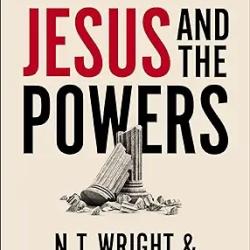The subject of Chapter Six is the Disciples, and it is one of the shortest chapters in the book ( pp. 169-82). The focus, as it turns out is on the Twelve or the apostles (a term the Pope doesn’t want to debate and thinks was eventually restricted to the 12). The beginning point for the discussion is the fact that Jesus has formed a new family, a family of faith, not based on ethnicity, only based on adherence to him and his teachings, and so a more universal family.
In dealing with Mk. 3.13-19 the Pope deals with the mystery of election. Jesus prays and on the basis of what he has heard in prayer, chooses 12 from amongst the disciples and calls them his apostles. The leadership of the disciples is not determined by who volunteers. It is an election from God. It needs to be seen however that this election has to do with tasks for the Kingdom, it is not an election that has anything particularly to do with salvation. The chosen leaders are picked from a group of those who are already Jesus’ followers. As Mt. 9.38 suggests it is God who must choose those who will go out into the harvest and reap what has been sown by God. A problem arises however when the Pope then concludes the text is about disciples in general, when he says “You cannot make yourself a disciple—it is an event of election, a free decision of the Lord’s will, which in turn is anchored in his communion of will with the Father.” (p. 170). Not quite. If you substitute the word apostle, then this sentence can stand.
The debate then becomes whether we should see the Twelve as the new Israel in miniature. The Pope thinks the answer is yes, but this is a problem. The Twelve weren’t chosen to be Israel, they are chosen to be apostles who freed Israel, evangelizing even the lost sheep of Israel. The Pope also hears echoes of 1 Kings 12.31; 13.33 here as if the Twelve were being appointed to the priesthood. But the tasks of the Twelve are nothing like the priests in the Temple, they are evangelists and as the Pope notes, the calling them by name has more resonances with the calling of prophets. So I doubt Mark here is presenting the 12 as a fusion of priestly and prophetic ministries, more likely just the latter. It is however intriguing when the Pope brings John 1.51 into the discussions, which suggest that Jesus himself is the new Jacob/Israel or even the gate of God on whom the angels were ascending and descending (a symbol presumably of communion and communication between the Son of Man and God). Is Jesus the patriarch of the definitive Israel as the Pope suggests? I would suggest the 4th Evangelist is claiming more than this— Jesus is the new Israel in himself.
The Pope then points out the 12 are chosen to be with Jesus and to go forth preaching, exorcising, healing, just as Jesus did. The connection between these two things, is that they must first know Jesus, know his purposes, understand his work, before they can be his hands and feet extending his work. This is why as well the new 12th member of this inner circle also was chosen on the basis of his being someone who had been with and travelled with Jesus (Acts 1.8,21). The Pope stresses the heterogeneous nature of the 12— some former zealots (including apparently Judas), some co-operators with the powers that be, namely tax collectors, some ordinary fishermen caught between those two extremes and trying to make a living. The social and presumably religious diversity of the group is a microcosm, on a smaller scale, of the later body of Christ. But note there are no Gentiles here, and with reason. The 12 had a special mission to Israel first and foremost, to Jews wherever and whenever a mission someone like Peter continued into the Diaspora after Pentecost.
The Pope also mentioned (p. 179) the choosing of the 70 or 72 (see Deut. 32.8 see the variant reading; Exod. 1.5) a symbolic number for all the nations in the world (the mission to Gentiles being an urgency of Luke’s). Interestingly it is this tradition about the 70 nations which led to the tradition in the Letter to Aristeas about the 70 translators of the Torah into Greek (for the benefit of the Jews in the nations as well as being a light to the nations). On pp. 180-81 the Pope rightly highlights Lk. 8.1-3 and the discipleship of women to Jesus, but then he turns around and emphasizes the difference of their function to that of the Twelve, seeing the women as chiefly patronesses. While that is one of their roles, it is clear from other texts, such John 4 or John 20 that women are also portrayed as those who proclaim the Good News about Jesus to men and other women.
One of the helpful features of the Pope’s treatment of the Gospels is that he tries to use them all in balanced, but not in an uncritical fashion. And when a Gospel has special features, he takes them as not reflecting a Gospel writer’s own eccentricities, but rather reflecting something genuine in the ministry of Jesus. He puts it this way “ If we have good reason to be convinced that the Holy Scriptures are ‘inspired,’ that they matured in a special sense under the guidance of the Holy Spirit, then we also have good reason to be convinced that precisely these specific aspects of the Lukan tradition preserve essential features of the original figure of Jesus for us.” (p. 182—referring among other things to Luke’s emphases on the role of women and Jesus’ concern for the poor).














